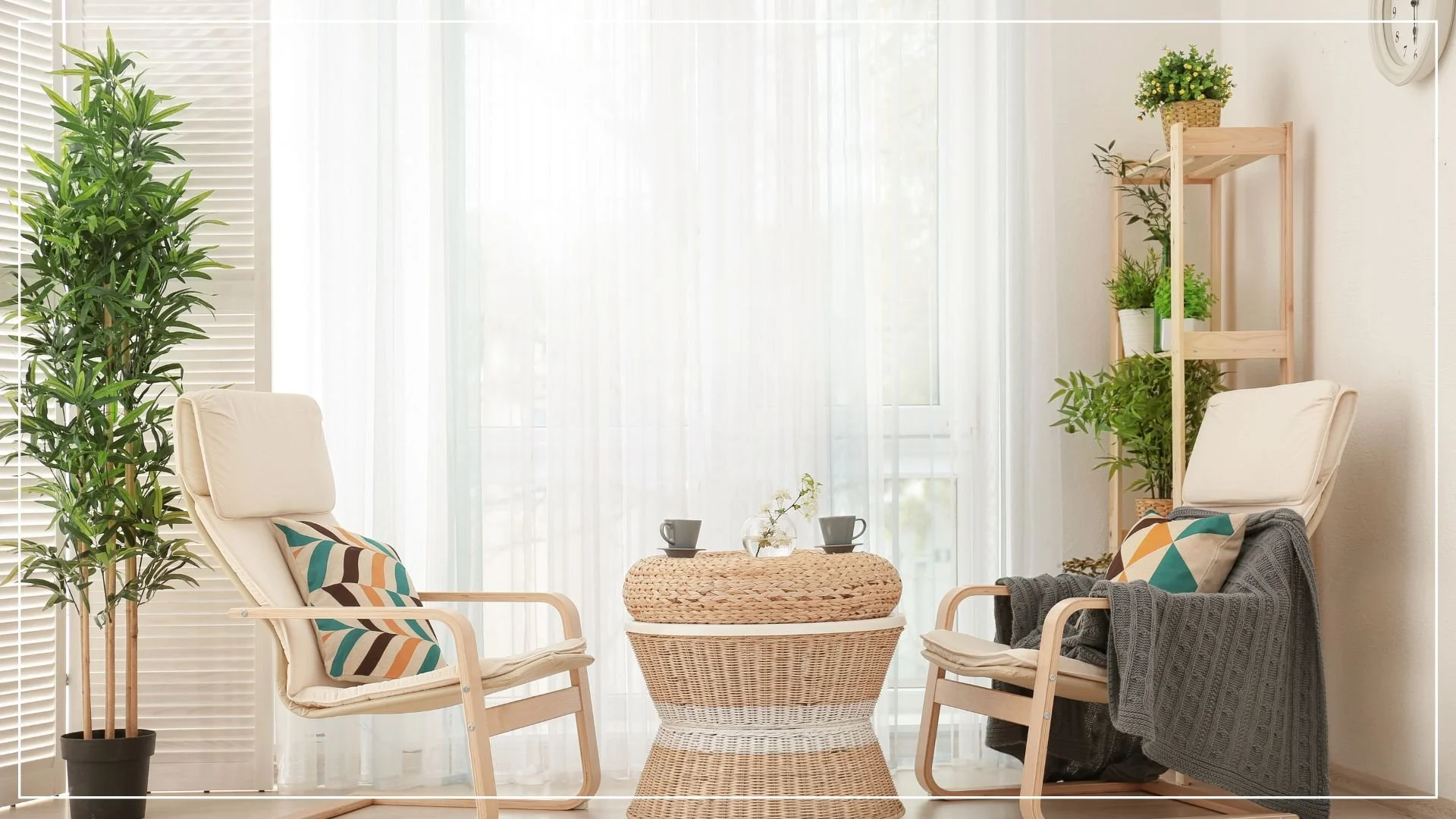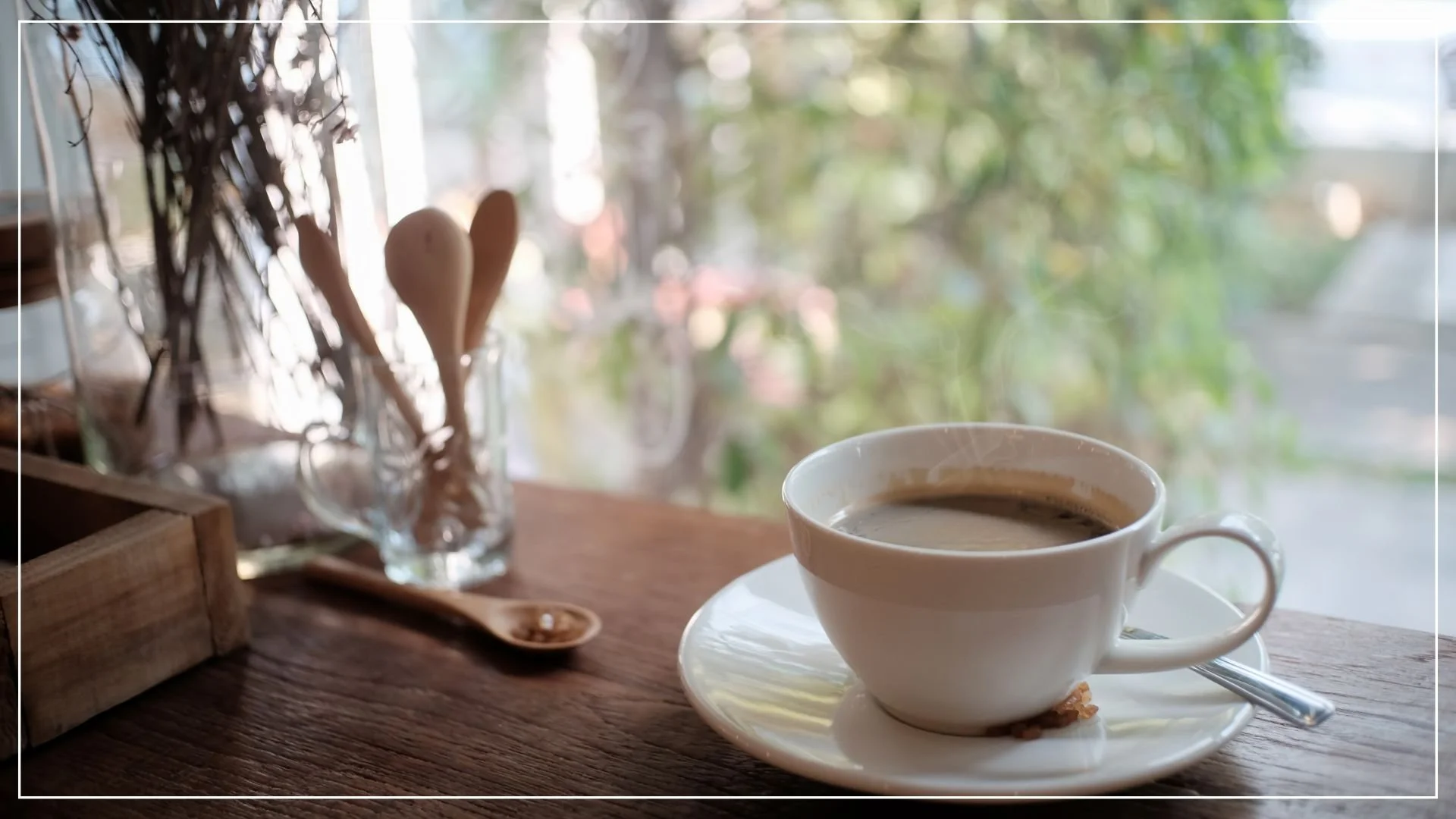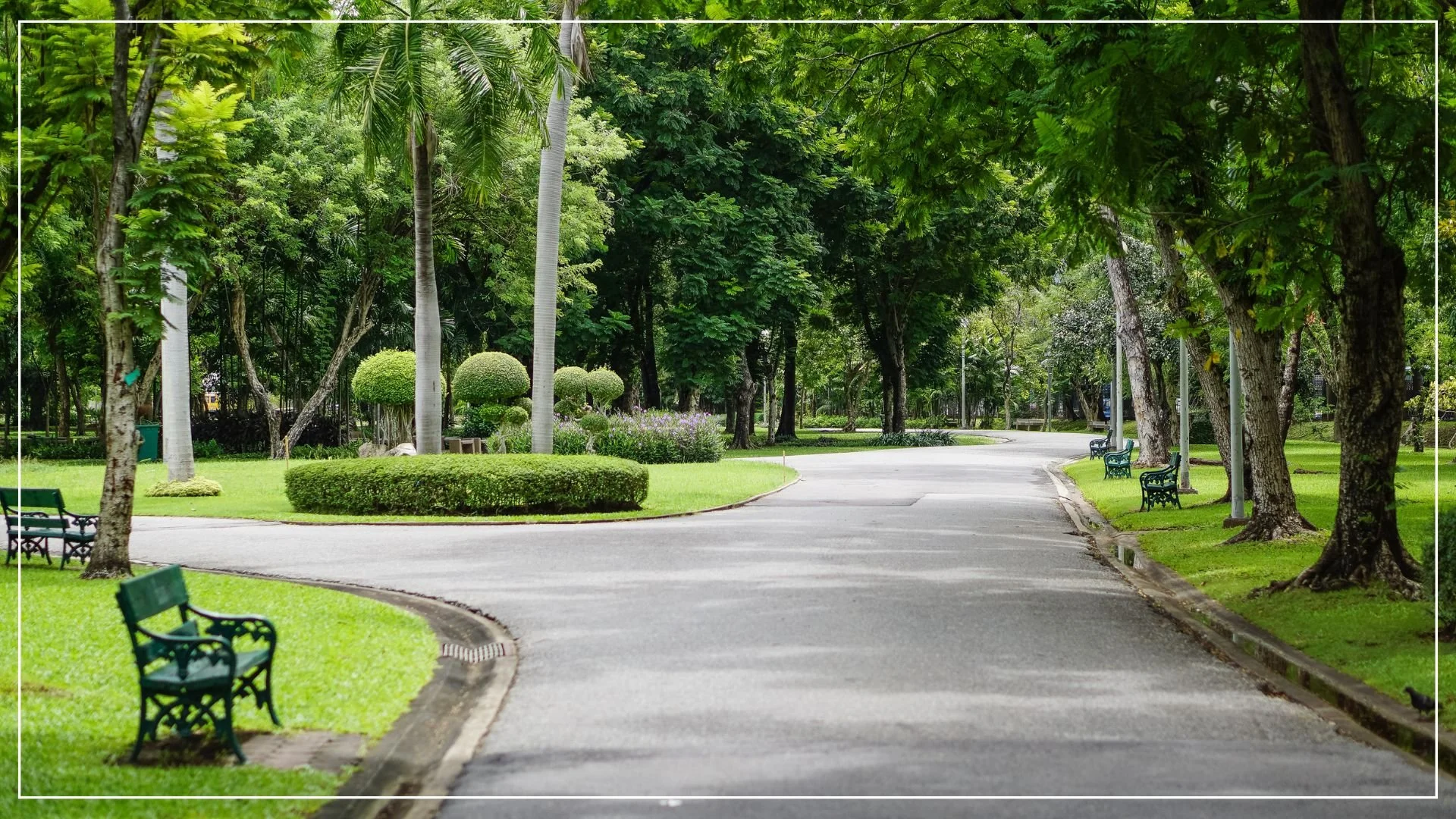Actually Embracing Slow Living in the Urban Jungle
Begin to adopt a more intentional and peaceful pace while living in your city with these practical tips for urban dwellers.
When you picture "slow living," it's easy to imagine a quaint country cottage on a quiet lane, or a minimalist cabin tucked away in the woods. And this because it's true, those settings lend themselves beautifully to a slower pace. But when you’re living in a bustling city, the idea of slow living often feels like it's perpetually out of reach or something impossible when you live ‘a conventional life’. This post is going to try reframing what slow living in a city looks like. Not to escape the city, but to reframe how you experience it.
“Cities aren’t the enemies of centered life. Mindfulness arises from inside, after all, so what’s needed, I came to discover, are the right questions and practices. Nor are cities the enemy of the environment.” ~ William Powers, New Slow City: Living Simply in the World’s Fastest City
The City Paradox: Connected Yet Disconnected
One of the things that often comes up is how incredibly digitally interconnected we are, yet so far removed from the people right around us. You can chat with people around the world at any time of day, but most of us don't even know our neighbours or have much connection with our local community.
And social media has really warped our thinking. So many of us now look at our lives through the lens of how they'd appear online. Cities and places are being “reinterpreted, reimagined, designed, packaged, themed and marketed”, and suddenly, your sense of place becomes just another commodity. The cult of consumerism overrides many traditional social and cultural (even spiritual) values. And there is always a tipping point when counterculture finds stronger roots. Think of the anti-consumerism trends and slow living movements, a returning to simpler times.
Why "Slow" Feels So Hard (and What It Really Means)
But when we really think about it, as modern people, we absolutely love speed and convenience. There is a growing goal of creating a frictionless life. “Slow” reminds us of dial-up internet, landlines, waiting for the post, traffic jams, and queues at government departments. And because of this, slow often feels like inefficiency, delays, and lost time. So when time feels like such a precious, scarce commodity, slowing down can seem like a luxury only for the super-wealthy. I remember some motivational speaker or bumper sticker saying you have the same 24-hours as Beyoncé. But for most of us, our situations look completely different to Queen B’s. We prepare and cook our own food, do our own laundry, and clean our own houses.
But is that what slow living really means? In actuality, slow living simply encourages intention over impulse Social media has muddled things, making slow living seem like it's all about "trad-wife" aesthetics or homesteading. But that's a really misleading assumption. You absolutely do not have to uproot your life to find your roots. When you strip away romanticised stereotypes and instead romanticise your own life, you reclaim the true philosophy of slow living. If it helps, it’s about marketing your life to yourself instead of constantly assessing its marketability to others.
Making your butter from scratch and baking your bread can sound like a lovely, accessible activity. But when you’re overwhelmed with life’s stresses and pressures, that store-bought bread feeds your children just fine. It’s all about finding your balance, and working what slow living works for you. You also don’t have to abandon your ambition, because ambition shouldn’t equal bordering on burnout. Slow living can actually help better align with your ambition because it’s all about creating a life that feel full (not draining) and prioritising what truly matters (helping you say no to anything distracting you from your values and goals).
Creating Slow Moments in Your Apartment
A few intentional minutes of intentional slow moments can recalibrate your life while living in a city (no garden or chicken coop required).
Love the season you're in: Open the blinds slowly and greet the spring and summer morning light with gratitude. Open the curtains and greet the dark autumn and winter morning with peace and reverence.
Meditate with your brew: While your tea or coffee steeps, cup your hands on the mug to feel its warmth, inhale its aroma to ground you in that moment, and give yourself a compliment or affirmation for the day (an informal mindfulness practice that’s also screen-free).
Slow your movements: A stretch on and next to the bed can start and end your day with practiced peace. A 5-minute yoga flow can get your blood and energy moving in your body (an informal self-care practice).
Eat bored: Eat at the table, screen-free, and chew your food properly. If you’re not alone, talk to each other about your day or plans. This single-task way of eating can help you appreciate your meals more, and how you nourish your body. Cook simple, nourishing meals rather than relying on fast food whenever you can.
Choose soft lighting: Swap harsh white lights with gentler warm lights. Or use more lamps and candles than the overhead lights.
Have a windowsill garden: Have a few herbs on the windowsill to add a very fresh element to your food. Their scents filling your home can also be grounding.
Create Hygge corners: Dedicate a small area of your flat to comfort and cosiness – a reading nook, a sunlight plant-filled corner for meditation and journaling, a craft box next to the couch.
Adding biophilic design elements can help you feel more connected to the natural world in the safety of your home. Try different scents to find your favourites and add these to your space (incense, candles, essential oil diffusers). Think of the smell of cut grass, woody scents, or floral smells. Make your fresh bread if you’re so inclined, make some homemade jam if you have the time, spend more on your balcony if you have one. Create your own definition of slow living as a city dweller.
“Light a candle while you fold laundry. Put fresh flowers on your desk while you work. Brew your coffee like it’s a ceremony. These small acts of intentionality transform routine into ritual, tasks into treasures, and moments into memories. ~ Vex King
Creating Slow Moments in the City
Urban living allows for slow living when you allow for it in your life.
Earthing on concrete: Visualise connecting with the Earth with each footfall – strength and peace flowing into your step forward, and fears and frustrations leaving you with each lifting of your foot.
Curiosity: Look for new details around you – new graffiti, a blooming tree, a street mural, bumpy parts of the track, a child telling an animated story. Bring a hot drink in a reusable cup and watch people go by, or sit in a coffee shop and people-watch from the window.
Digital fast: Intermittent fast from your phone in the last part of your commute or lunch break – read, sit in silence, doodle.
Try micro-rewilding: Visit the nearest green patch during lunch – walk through the park, sit on the bench amongst flowers.
Stroll through the farmer’s market: The general vibe of markets is slower and more grounded. Simply strolling through them and being surrounded by this energy can help you feel like.
Attend city events: Look out for street festivals, weekly markets, art exhibitions, live music – anything that naturally makes you stop and slow down. The bonus is the creativity exposure of these types of events.
Slow living is a portable practice because it is more about presence than place. Each intentional act you make is a choice for that life.
Benefits of Slow Living
Thrive at your own pace, because the benefits of slow living are real:
Enhanced well-being: When you slow down, you create space for self-care, for listening to your body's signals, and for nurturing your mental and emotional health. This can lead to reduced stress, improved sleep, and a greater sense of overall contentment.
Deeper connections: Rushing through life leaves little room for meaningful engagement. Slow living allows you to be more present with loved ones, to truly listen, and to cultivate richer, more authentic relationships.
Increased creativity and clarity: When your mind isn't constantly racing, it has room to breathe, to wander, and to generate ideas. This can spark new insights, foster creativity, and lead to greater clarity in your decision-making.
Greater appreciation: Slowing down helps you notice and appreciate the small, everyday joys that often get overlooked in the rush. The warmth of the sun on your skin, the aroma of freshly brewed coffee, the laughter of a child – these moments become more vibrant and cherished.
Authentic living: By intentionally choosing your pace, you move closer to living in alignment with your true self. You shed the pressure to conform to external expectations and embrace a life that feels genuinely yours.
Beyond the Personal: Slow Living's Wider Ripple Effect
It's clear that slow living can do wonders for your personal well-being, but the beauty of it is that its intentional nature can have wider ripple effects too. When you choose to consume less, mend rather than replace, or buy quality over quantity, you're not just decluttering your home; you're often making a more mindful choice for the planet. Think about the impact of choosing local produce at a farmer's market (which you already suggest!) over highly processed, globally shipped alternatives.
And surprisingly, slow living can often be kinder to your wallet. By saying no to impulse buys, focusing on experiences rather than possessions, and embracing simplicity, you might find yourself spending less on things you don't truly need. It's not about being cheap, but about being conscious with your resources – time, energy, and money.
There is no rigid set of rules to follow for slow living. Let it look like what it looks like for you. To start, pick one or two areas where you feel you can easily incorporate more intentionality and presence. Try committing yourself to screen-free dinner and taking a mindful walk during your lunch break once a week. Slow living is a philosophy that meets you where you are.
Affirmation: I am capable of creating peace and presence in my life, right here, right now, no matter where I am.
To-do: Choose one small, screen-free moment today to fully engage your senses. This could be mindfully enjoying your morning cuppa, taking a truly present walk around the block, or eating your next meal without distractions.
Journal Prompts: Reflect on a time recently when you felt rushed or overwhelmed. How did it affect you? Now, imagine how slowing down, even for a few minutes in that moment, might have changed your experience. What's one tiny step you can take next time to invite more intentionality into a busy moment?
Connect with Spirited Earthling on your favourite social platforms and say hello 🌻
Resources for mind, body, and soul growth available in the Shop🌿



